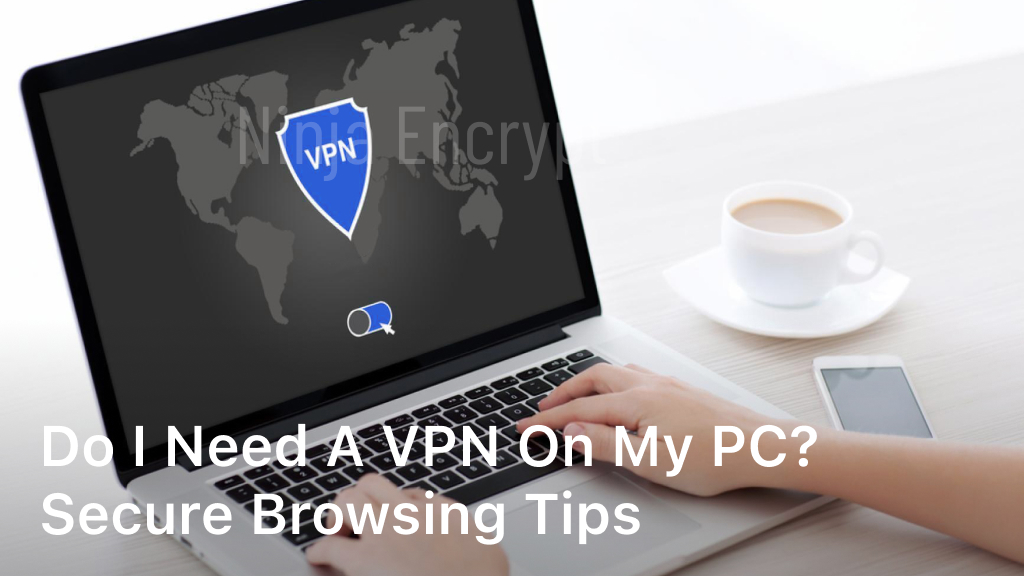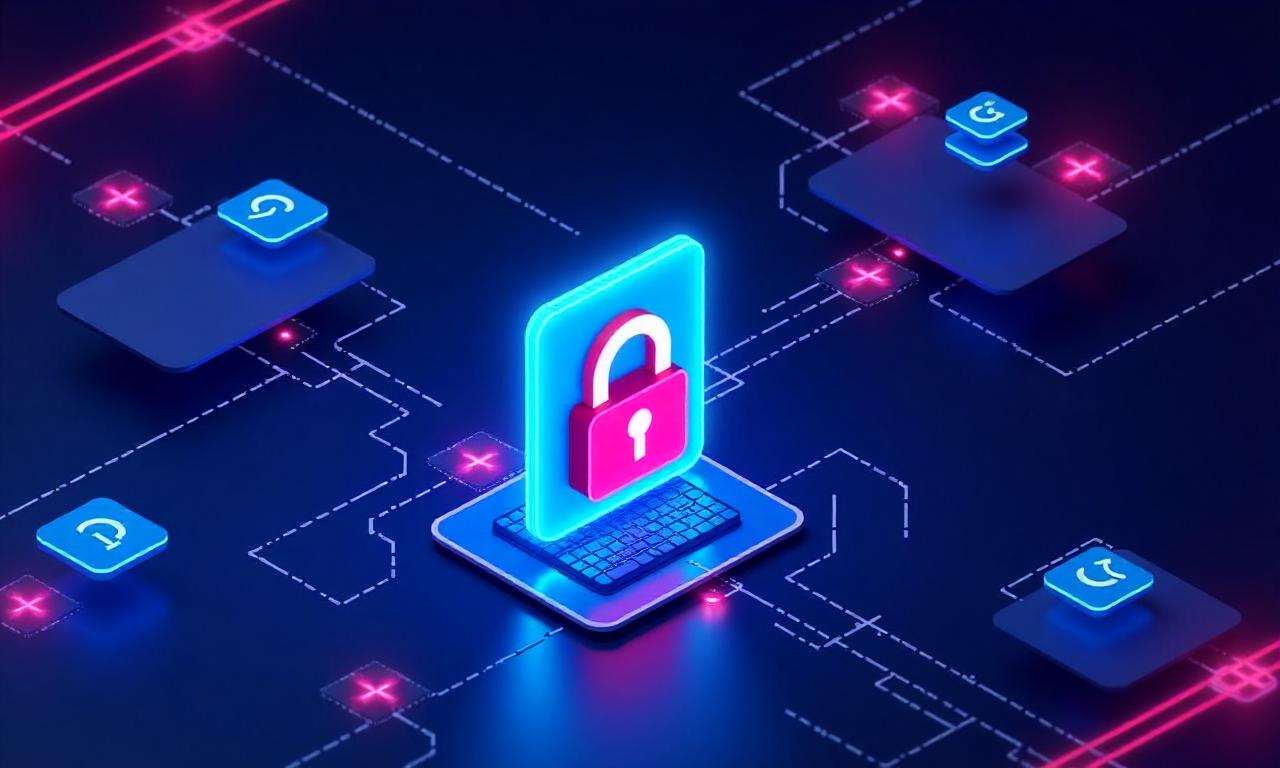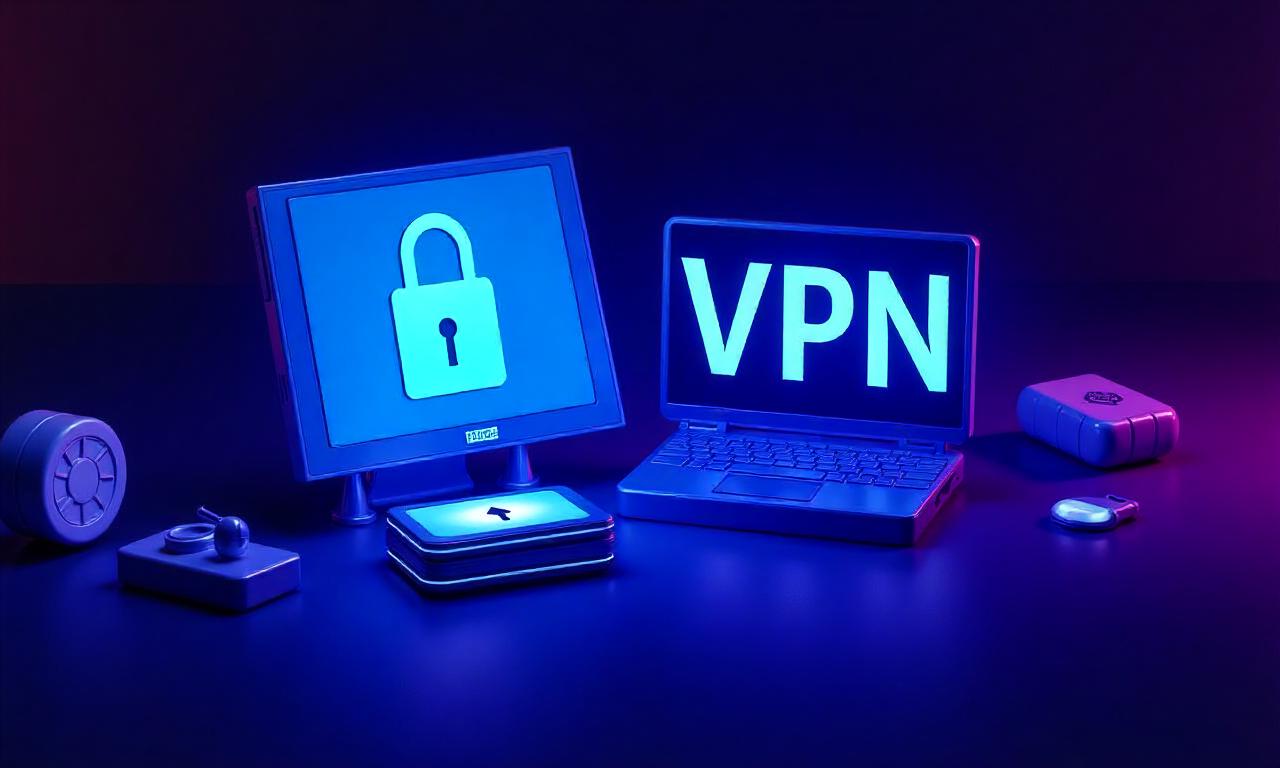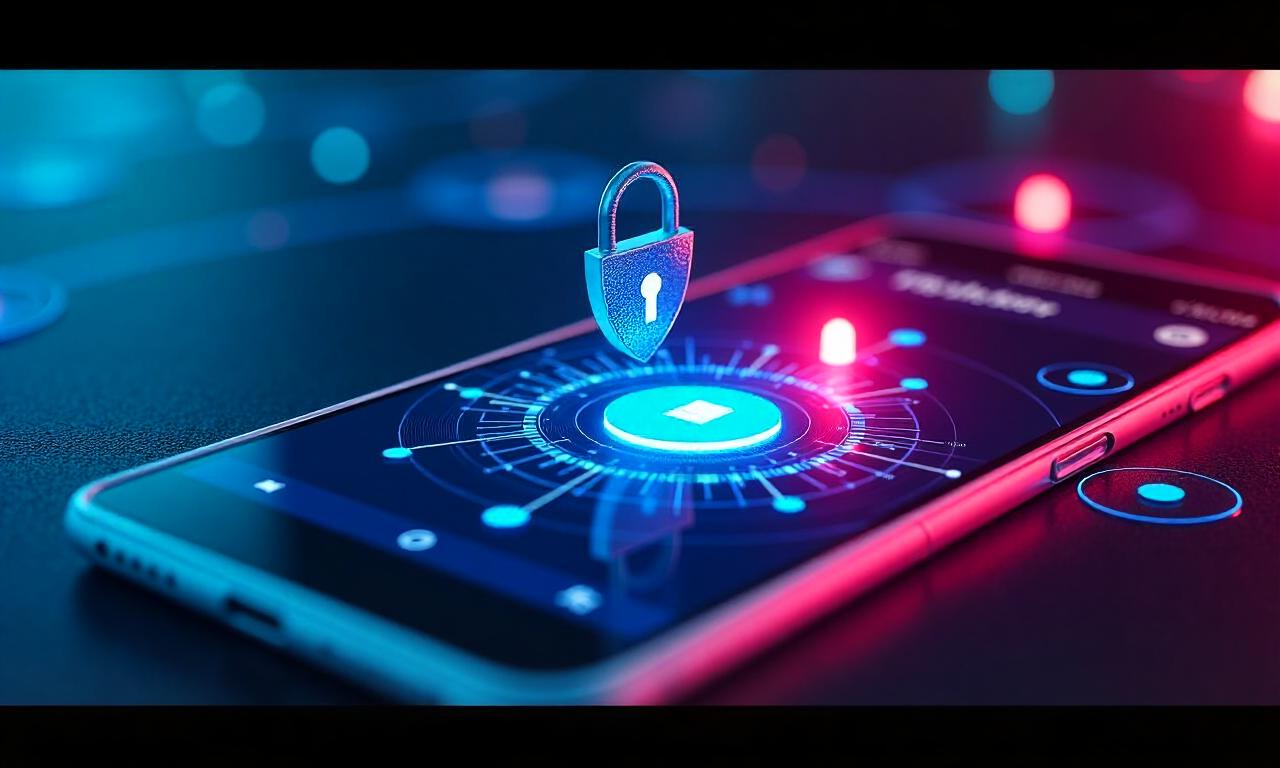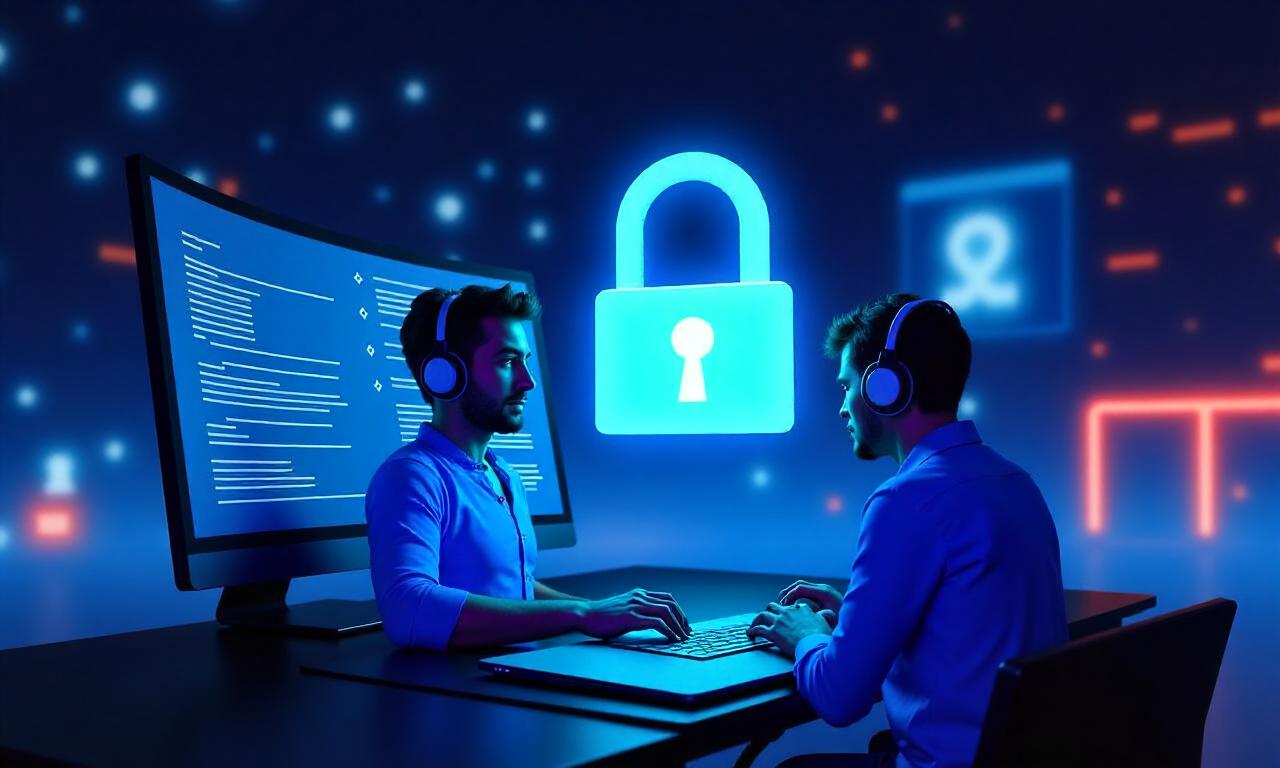Welcome to our guide on the importance of using a VPN on your PC for secure browsing and online privacy. With cyber threats on the rise and our digital activities becoming increasingly vulnerable, it’s crucial to take steps to protect our sensitive information and enhance our overall security.
So, the question arises – do I need a VPN on my PC? The answer is a resounding yes! Using a VPN (Virtual Private Network) on your PC offers numerous benefits and advantages when it comes to safeguarding your online presence.
By encrypting your data, a VPN ensures that your sensitive information remains secure and unreadable to prying eyes. It acts as a shield between your PC and potential cyber attackers, protecting you from identity theft and unauthorized access to your personal details.
Additionally, a VPN allows you to bypass geo-restrictions and access region-locked content effortlessly. Whether you want to stream your favorite shows, access blocked websites, or engage in online gaming, a VPN can grant you unrestricted access to the content you love.
Moreover, a VPN enhances your privacy by masking your IP address and anonymizing your online activities. It prevents websites, advertisers, and internet service providers from tracking your browsing history and collecting data about your online behavior.
But how do you choose the right VPN for your PC? Don’t worry, we’ve got you covered! In the following sections, we will discuss the essential factors to consider when selecting a VPN, as well as provide step-by-step instructions on setting up and using a VPN on your PC.
So, whether you’re concerned about your online security, privacy, or simply want to unlock exciting online opportunities, stay tuned, and we’ll guide you through everything you need to know about using a VPN on your PC.
Table of Contents
ToggleReasons to Use a VPN on Your PC
When it comes to safeguarding your online security and privacy, using a VPN on your PC is a decision you won’t regret. Not only does a VPN encrypt your data, but it also offers several advantages that enhance your browsing experience. Here are some compelling reasons why you should consider using a VPN on your PC:
- Encrypting Your Data: One of the key advantages of having a VPN on your PC is that it encrypts your data, making it virtually impossible for anyone to intercept or decipher your confidential information. This extra layer of security ensures that your sensitive data remains protected, whether you’re browsing the web, sending emails, or conducting online transactions.
- Bypassing Geo-Restrictions: A VPN allows you to bypass geo-restrictions imposed by websites and services. By connecting to a server located in a different region, you can access content that is otherwise unavailable in your location. Whether you want to stream your favorite shows or access region-specific websites, a VPN opens up a world of possibilities.
- Protecting Your Identity Online: With cyber threats becoming increasingly sophisticated, protecting your identity online is of paramount importance. A VPN masks your IP address, making it difficult for hackers and other malicious entities to trace your online activities back to you. By preserving your anonymity, a VPN shields you from identity theft and invasive surveillance.
- Enhancing Wi-Fi Security: Public Wi-Fi networks are notorious for their lack of security, leaving your personal data vulnerable to interception. However, with a VPN on your PC, you can confidently connect to any public Wi-Fi hotspot without worrying about your privacy. The VPN encrypts your data, ensuring that it remains secure even when you’re connected to unsecured networks.
By taking advantage of these benefits, you can enjoy a safer and more private online experience on your PC. Stay one step ahead of cyber threats and protect your sensitive information by using a VPN.
Enhancing PC Security with a VPN
When it comes to safeguarding your online security, using a VPN on your PC is of utmost importance. A VPN, or Virtual Private Network, provides an extra layer of protection by encrypting your internet connection and ensuring that your personal information remains secure from potential cyber threats.
With the increasing number of cyberattacks and data breaches, it is crucial to take proactive measures to protect your PC. By using a VPN, you can significantly enhance your PC’s security and minimize the risk of falling victim to hackers and identity theft.
One of the key benefits of a VPN for PC security is its ability to safeguard your internet connection. By encrypting your data, a VPN creates a secure tunnel that prevents unauthorized access to your sensitive information. This is particularly important when using public Wi-Fi networks, which are notorious for their lack of security.
Addition of an ordered list
- A VPN prevents hackers from intercepting your data as it travels between your PC and the websites you visit.
- It protects your personal information, such as passwords, credit card details, and banking credentials, from being compromised.
- Browsing the internet through a VPN also helps to maintain your anonymity and protect your identity online.
Preventing Cyberattacks with a VPN
Another vital aspect of using a VPN on your PC is its ability to prevent cyberattacks. With the increasing sophistication of cybercriminals, it has become crucial to stay one step ahead of their malicious intentions.
By routing your internet traffic through encrypted servers, a VPN masks your IP address and makes it difficult for hackers to track your online activities. This ensures that your PC remains hidden from prying eyes and significantly reduces the risk of becoming a target for cybercriminals.
In addition, a VPN provides an added layer of protection against malware and phishing attempts. It acts as a shield, blocking malicious websites and preventing them from infecting your PC with harmful software.
Protecting Personal Information with a VPN
Personal information is highly sought-after by cybercriminals, as it can be exploited for various fraudulent activities. However, by using a VPN on your PC, you can effectively protect your personal information and keep it out of the hands of hackers.
A VPN encrypts your data, making it unreadable to anyone attempting to intercept it. This includes your browsing history, online communication, and any other sensitive information you transmit while connected to the internet. As a result, even if your internet connection is compromised, your personal information remains safe and secure.
In summary, the importance of using a VPN for PC security cannot be overstated. By enhancing the security of your internet connection, preventing cyberattacks, and protecting your personal information, a VPN provides you with peace of mind and reassurance when browsing the web.
Protecting Your Privacy with a VPN on PC
When it comes to preserving your online privacy on your PC, using a VPN is crucial. A VPN, or Virtual Private Network, offers a range of privacy-enhancing features that can keep your sensitive information secure and ensure peace of mind while browsing the internet.
One of the primary ways a VPN protects your privacy is by masking your IP address. Your IP address is a unique identifier that can be used to track your online activities and even your physical location. By using a VPN, your IP address is hidden and replaced with a different one, making it much more challenging for anyone to trace your online actions back to you.
Additionally, a VPN anonymizes your online activities by encrypting your internet traffic. This means that any data you send or receive online is scrambled and can only be deciphered by your device and the VPN server you are connected to. This encryption helps safeguard your personal information, such as passwords, credit card details, and browsing history, from prying eyes.
Furthermore, a VPN keeps your browsing history private. Internet service providers (ISPs) and other third parties can track and record your browsing habits, which can then be used for various purposes. However, by utilizing a VPN, your online activities are hidden from ISPs and other entities, providing you with an additional layer of privacy.
In summary, using a VPN on your PC is essential for protecting your privacy. It masks your IP address, anonymizes your online activities, and prevents anyone from tracking your browsing history. With a VPN, you can browse the internet with confidence, knowing that your personal information is secure.
The Benefits of Using a VPN on PC
Using a VPN on your PC comes with a multitude of benefits that can greatly enhance your online experience. Whether you’re concerned about your privacy, security, or accessing region-locked content, a VPN provides the perfect solution. Here are some key benefits of using a VPN on your PC:
- Enhanced Online Security: A VPN encrypts your data, making it virtually impossible for hackers to intercept and decipher your sensitive information. With a VPN, you can browse the internet with peace of mind, knowing that your online activities are protected.
- Access to Region-Locked Content: By connecting to a VPN server in a different location, you can bypass geo-restrictions and access content that is otherwise unavailable in your area. Unleash the full potential of the internet and enjoy streaming services, websites, and apps from anywhere in the world.
- Protection on Public Wi-Fi: Public Wi-Fi networks can be a breeding ground for cybercriminals. A VPN creates a secure and private tunnel between your PC and the internet, ensuring that your data remains encrypted and protected, even when connected to unsecured Wi-Fi hotspots.
- Anonymity and Privacy: With a VPN, you can mask your IP address and browse the internet anonymously. This means that your online activities cannot be traced back to you, offering an added layer of privacy and preventing advertisers, ISPs, and other entities from monitoring your online behavior.
- Bypass Internet Censorship: Some countries and organizations impose strict internet censorship, limiting access to certain websites and services. By using a VPN, you can bypass these restrictions and enjoy an open and unrestricted internet experience, without compromising your privacy or security.
- Prevent ISP Throttling: Internet service providers (ISPs) sometimes intentionally slow down your internet connection, especially when you’re engaging in high-bandwidth activities like streaming or gaming. By using a VPN, you can prevent ISP throttling and enjoy faster, uninterrupted internet speeds.
With these benefits in mind, it’s clear that using a VPN on your PC is essential for anyone seeking a secure, private, and unrestricted online experience. Don’t leave your digital life vulnerable- protect yourself with a trusted VPN provider today.
Choosing the Right VPN for Your PC
When it comes to securing your online activities and maintaining your privacy on your PC, choosing the right VPN is crucial. With a multitude of options available, it can be overwhelming to find the perfect fit. To help you make an informed decision, here are some valuable tips to consider:
- Encryption Protocols: Look for a VPN that offers strong encryption protocols such as AES-256. This ensures that your data remains encrypted and secure, protecting it from potential hackers or third-party monitoring.
- Server Locations: Check if the VPN has servers in the locations you need. Having a diverse range of server locations allows you to access content from different countries and bypass geo-restrictions.
- User-Friendly Interfaces: Opt for a VPN that offers a user-friendly interface. This makes it easier for you to navigate through settings, choose servers, and customize your VPN experience to suit your needs.
- Customer Support: Consider the availability and quality of customer support provided by the VPN. In case of any issues or queries, having responsive and knowledgeable customer support can be immensely helpful.
- Compatible Devices: Ensure that the VPN you choose is compatible with your PC’s operating system. Whether you are using Windows, macOS, or Linux, verify that the VPN software is supported on your device.
By taking these factors into account, you can select a VPN that offers the right balance of security and privacy for your PC. Remember to research, read reviews, and compare different VPN providers before making a decision. Your online security and privacy depend on it.
Setting Up and Using a VPN on PC
If you’re concerned about your online security and privacy while browsing the internet on your PC, using a VPN is a smart choice. A VPN, or Virtual Private Network, creates a secure and encrypted connection between your PC and the internet, protecting your sensitive information and keeping your online activities private.
In this section, we will guide you through the process of setting up and using a VPN on your PC, ensuring secure browsing and peace of mind.
Step 1: Choose a Reliable VPN Provider
The first step is to choose a reputable VPN provider that offers a PC-compatible VPN client. Look for features like strong encryption, a wide range of server locations, and a user-friendly interface. Popular VPN services like NordVPN, ExpressVPN, and CyberGhost are good options to consider.
Step 2: Download and Install the VPN Software
Once you’ve selected a VPN provider, visit their website and download the VPN software for your PC. Follow the installation instructions provided by the VPN provider to set up the software on your computer. Most VPN clients have straightforward installation processes, making it easy for you to get started.
Step 3: Configure VPN Settings
After installing the VPN software, open the client and configure the settings according to your preferences. You can usually choose the server location you want to connect to and enable additional security features. Some VPN clients also offer options to automatically connect to the VPN when your PC starts or when you connect to untrusted networks.
Step 4: Connect to a VPN Server
Once you’ve configured the settings, it’s time to connect to a VPN server. Open the VPN client, choose a server location from the list provided, and click on the connect button. The VPN client will establish a secure connection to the selected server, encrypting your data and masking your IP address.
Step 5: Enjoy Secure Browsing on Your PC
Once connected to the VPN server, you’re ready to browse the internet securely on your PC. All your online activities will be encrypted, making it extremely difficult for anyone to intercept or monitor your data. You can now enjoy the benefits of secure browsing, including accessing region-restricted content, protecting your personal information, and preventing online tracking.
By following these simple steps, you can easily set up and use a VPN on your PC for secure browsing. Remember to always connect to the VPN before accessing the internet to ensure maximum protection of your data and online privacy.
Conclusion
In conclusion, having a VPN on your PC is essential for secure browsing and online privacy. With the increasing threats of cyberattacks and data breaches, it is crucial to take proactive measures to protect your personal information and ensure a safer online experience.
A VPN encrypts your data, making it unreadable to unauthorized individuals, and adds an extra layer of security to your internet connection. By masking your IP address, a VPN allows you to browse the web anonymously, protecting your identity and preserving your online privacy.
Furthermore, a VPN safeguards your online activities from prying eyes and prevents your internet service provider (ISP) from tracking your browsing history. This means that you can access websites and online content without being subjected to location-based restrictions or targeted advertisements.
Take the necessary steps to protect your digital life today by choosing the right VPN for your PC, setting it up correctly, and using it whenever you go online. By doing so, you can enjoy the benefits of secure browsing, efficient data protection, and a greater peace of mind while navigating the vast world of the internet.
FAQ
Do I need a VPN on my PC?
Yes, using a VPN on your PC is highly recommended. It provides an extra layer of security and privacy by encrypting your internet connection and disguising your IP address. This helps protect your sensitive information from hackers and ensures your online activities remain anonymous.
What are the benefits of using a VPN on my PC?
There are many benefits to using a VPN on your PC. Some of the main advantages include securing your data, bypassing geo-restrictions, accessing region-locked content, protecting your identity online, and enhancing your overall online security and privacy.
How does a VPN enhance PC security?
A VPN enhances PC security by encrypting your internet connection and preventing unauthorized access to your personal information. It shields your data from potential cyberattacks, protects you while using public Wi-Fi networks, and safeguards your online activities from being tracked by hackers or surveillance agencies.
Does a VPN protect my privacy on my PC?
Yes, a VPN can protect your privacy on your PC. It masks your IP address, making it difficult for websites and online services to track your location or identify you. Additionally, a VPN encrypts your internet traffic, ensuring that your browsing history, online communications, and personal information remain private.
Why should I use a VPN on my PC?
Using a VPN on your PC is essential for several reasons. It helps safeguard your sensitive information, protects your online identity, allows you to browse the internet anonymously, bypasses censorship and geo-restrictions, and ensures a secure and private internet experience.
How do I choose the right VPN for my PC?
When choosing a VPN for your PC, consider factors such as security protocols, server locations, speed, user-friendly interface, customer support, and compatibility with your operating system. It’s important to choose a reputable VPN provider that meets your specific needs and offers strong encryption and a strict no-logs policy.
How do I set up and use a VPN on my PC?
Setting up and using a VPN on your PC is straightforward. First, you need to sign up for a VPN service and download the VPN client software. Install the software on your PC, launch the application, and log in using your credentials. From there, you can choose a server location, establish a secure connection, and start browsing the internet with enhanced privacy and security.
Why is having a VPN on my PC important for browsing?
Having a VPN on your PC is crucial for browsing because it protects your sensitive data, shields your online activities from prying eyes, and allows you to access blocked or censored content. Whether you’re using public Wi-Fi or conducting sensitive transactions, a VPN ensures that your information remains secure and your privacy is maintained.


